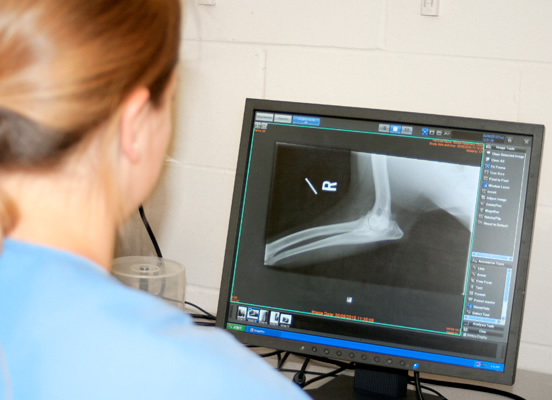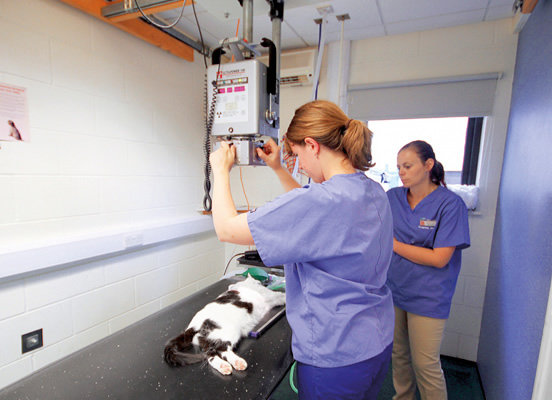At NVRS, we have an on-site digital imaging CR system that produces two-dimensional x-ray images. With minimal processing time, images are available quickly.
X-ray exposure is short and the procedure is often performed with a patient conscious but sedated, rather than anaesthetised. However, accurate positioning for x-ray is vital and subsequently, some cases require a general anaesthetic.
Images are stored on our PACS system and are viewed on our IRIS workstations or exported to remote systems.


Common uses for x-ray:
Hip and elbow scoring
As recommended by the BVA/Kennel Club scheme, x-ray can be used to check for elbow and hip dysplasia, prior to breeding.
Fractures
X-ray is ideal for looking at bones and joints.
Foreign bodies
X-ray is a quick and easy way to check whether a pet has swallowed an object it shouldn’t have.
Trauma
X-ray is often one of the first lines of investigation, in an acute trauma situation. X-rays are able to detect fractures and fluid collections.
Cardiothoracic
Chest radiographs are effective when looking at airway and cardiac disease.
